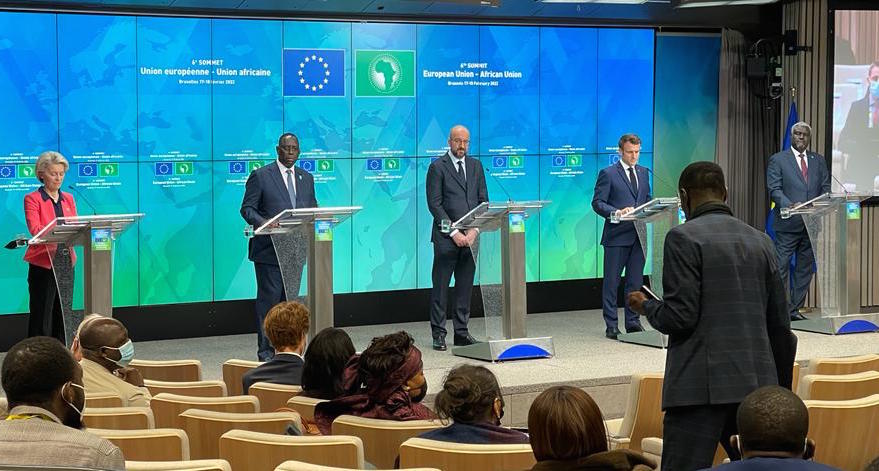|
Getting your Trinity Audio player ready…
|
The 6th European Union (EU)-African Union (AU) Summit, held on Thursday 17 and Friday 18 February 2022 in Brussels, ended with the adoption of a joint declaration on the Africa-Europe 2030 vision. Europe will implement a global investment strategy with at least 150 billion euros to support “projects wanted and carried by Africans, with priority given to transport infrastructure, digital networks, and energy. All while ensuring accountable, transparent and inclusive governance,” reads the summit’s final declaration.
The final communiqué of the 6th AU-EU summit on climate change is specified in its resolution number 4. On this point, the two organizations committed to stimulating public and private investments by building on existing initiatives and partnerships, with inclusive, sustainable, and resilient to the effects of climate change. These include investments in energy, transport, and digital infrastructure aligned with the second priority action plan of the Program for Infrastructure Development in Africa (PIDA-Pap II). Planned for the period 2021-2030, PIDA-Pap is based on an inventory of projects proposed by the Regional Economic Communities (RECs) and AU member states.
Supporting African states’ NDCs
The 4th AU-EU Summit resolution on climate action also includes investments to support the ecological transition. This includes support for the implementation of African countries’ Nationally Determined Contributions (NDCs) and National Adaptation Plans (NAPs) under the Paris Agreement to enhance adaptation and mitigation.
Read also-AFRICA: Climate change will cause a 15% drop in GDP by 2030
NDCs embody each country’s efforts to reduce its national emissions and adapt to the effects of climate change. They are at the heart of the Paris Agreement and its long-term goal of containing global warming to between 1.5°C and 2°C above pre-industrial levels.
African states are still struggling to achieve the NDCs, due to a lack of financial resources. And yet the Paris Agreement provides for a fund of 100 billion dollars per year to help developing countries, especially African countries, to cope with the climate crisis. But this fund is still not operational.
Source: Afrik21
